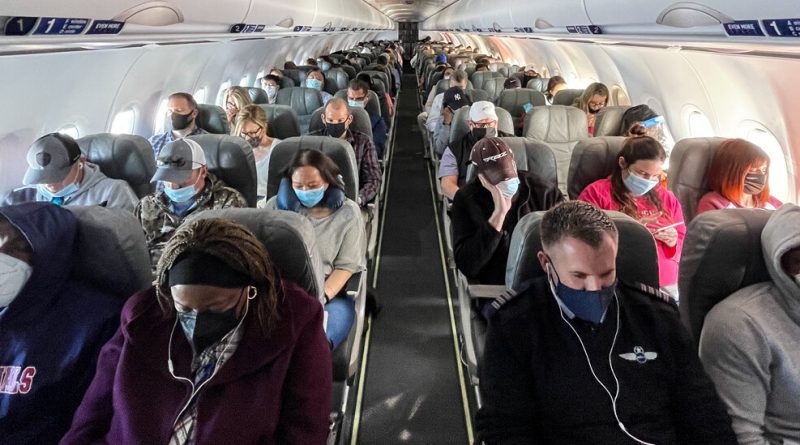Fully vaccinated people in the U.S. now have more guidance from the C.D.C. on activities. That doesn’t yet include travel.
[ad_1]
When the Centers for Disease Control and Prevention announced new freedoms for the fully-vaccinated members of the population, questions about traveling to visit grandchildren, for example, were immediate.
The answer, the C.D.C. director, Dr. Rochelle Walensky, said was yes, as long as the vaccinated grandparents lived nearby. But the agency continues to warn Americans against traveling in general.
“We know that after mass travel, after vacations, after holidays, we tend to see a surge in cases,” Dr. Walensky said Monday night on MSNBC. “And so, we really want to make sure — again with just 10 percent of people vaccinated — that we are limiting travel.”
To the frustration of airlines and others in the travel industry, the latest guidance comes as students and families are considering spring break plans almost a year after wide swaths of the United States first shut down, and a growing share of Americans tentatively book travel for later in the year.
Given the presence of virus variants in nearly every state and the need for more research on whether fully vaccinated people can still transmit the virus and other questions about the vaccines, Dr. Walensky said nonessential travel should be avoided, at least for now.
“It’s just a first step,” Jen Psaki, the White House press secretary, said on Tuesday, referring to the agency’s new guidance for fully vaccinated people. “As more people are vaccinated, they’ll look at ways to ease additional restrictions.”
The Biden administration said Tuesday that it is shipping 15.8 million additional vaccine doses to states, tribes and territories, with another 2.7 million first doses to pharmacies, Ms. Psaki said. Currently, there are 2.17 million vaccine shots being administered a day on average, she said.
What is safe for newly vaccinated Americans and their unvaccinated neighbors and family members has been uncertain in large part because scientists do not yet understand whether and how often immunized people may still transmit the virus. If they can, then masking and other precautions are still needed in certain settings to contain the virus, researchers have said.
“We know that the travel corridor is a place where people are mixing a lot,” Dr. Walensky said during a White House briefing on Monday. “We’re hopeful that our next set of guidance will have more science around what vaccinated people can do, perhaps travel being among them.”
Airlines for America, an industry organization, has argued that airplanes have a very low risk for virus transmission because of high-end cabin ventilation systems, strong disinfection practices and strict rules requiring that passengers wear masks. The industry has also argued that it plays a vital economic role and that further restrictions to travel could hinder the recovery.
“We remain confident that this layered approach significantly reduces risk and are encouraged that science continues to confirm there is a very low risk of virus transmission onboard aircraft,” the group said.
The first stimulus bill signed into law nearly a year ago, included $50 billion in grants and loans to prop up the airline industry, which was hobbled by the pandemic. In December, Congress approved another $15 billion in grants to keep airline workers employed. The relief bill passed by the Senate on Saturday includes $14 billion more for airlines, a measure applauded by the industry.
In a Monday letter to President Biden’s coronavirus response coordinator, Jeffrey D. Zients, a coalition of travel and tourism trade groups asked to work with the White House on federal guidance for temporary virus “health credentials,” which could be used to securely and uniformly verify test results or vaccination status. Such guidance could also yield benefits beyond aviation, they argued.
“It could encourage more widespread adoption of processes to verify testing and vaccination records, from sports arenas to restaurants, business meetings, theme parks, and more,” the group wrote.
Currently, the Biden administration requires people traveling to the United States from another country to present a negative virus test. At one point this year, administration officials were considering a similar requirement for domestic travel, a move the airline industry pushed back against, saying it was needlessly restrictive and would hurt an already struggling sector. The C.D.C. in February said it was not recommending testing for domestic travel “at this time.”
